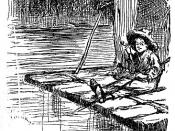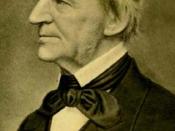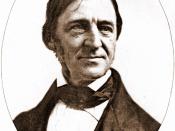In Ralph Waldo Emerson's essay "Self-Reliance" he aims to persuade the reader simultaneously promoting the principles of transcendentalism which, after all, turns out to be a great self- help source. Through Self-Reliance Emerson expresses his views, understanding, and reasons that lead to such views, on religion, education, art, and society. Defending his reasoning, Emerson provides the reader a number of vivid examples and simultaneously creates the proof for his understanding of reason's uses to question what we are perceived to know. Closer to conclusion Emerson states that greater self-reliance will lead to a revolution. Then, he connects this theory to society and all of its aspects, including religion, education, and art.
Overall, Ralph Waldo claims that the true basis for self-reliance is connection between an individual and nature (which is also his inner voice) which is important for a that individuals intellectual, aesthetic, and moral health and development. As for society and individual's relationship to it, Emerson believes that being an individual comes from trusting your inner voice and always being honest with yourself.
In addition, Emerson describes his view of what an individual is, and how the one becomes an individual in his opinion, by addressing all the various parts that consist of an individual. Besides, according to Emerson, one must follow what they believe is true for themselves and not listen to what other people think. He writes, "It is easy in the world to live after the world's opinion; it is easy in solitude to live after our own; but the great man is he who in the midst of the crowd keeps perfect sweetness the independence of solitude." Put another way, what Emerson suggests is that if one can live in a world full of people who think a certain way because they were taught to...


